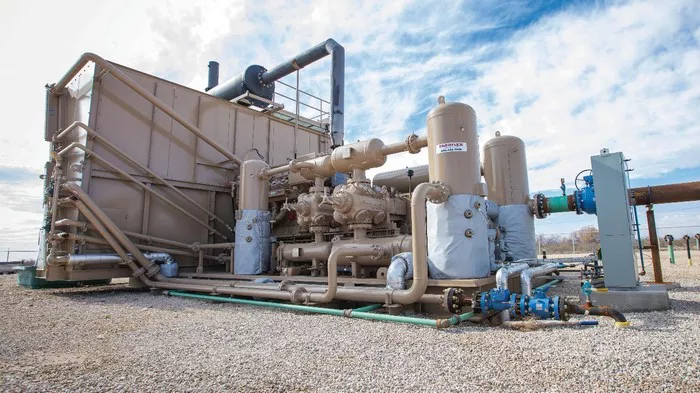The global liquefied natural gas (LNG) compressor market is on track for substantial expansion, with projections estimating its value to increase from $4.04 billion in 2023 to $5.26 billion by 2028. This growth reflects a compound annual growth rate (CAGR) of 5.3%, driven by significant demand for LNG and strategic investments in infrastructure.
A report by The Business Research Company provides a detailed analysis of the market’s current trajectory, highlighting the role of LNG compressors in the liquefaction of natural gas—vital for transportation and trade. According to the report, the market is expected to grow from $4.04 billion in 2023 to $4.28 billion in 2024, with a growth rate of 6.0%. Key factors influencing this increase include the rising global demand for LNG, operational efficiency, regulatory compliance, and broader market penetration.
Key Market Drivers
The growth of the LNG compressor market is closely tied to the expanding production of natural gas, particularly from shale reserves. Shale gas, which makes up a significant portion of U.S. natural gas production, has become a key contributor to the rise in global LNG demand. In October 2022, the U.S. Energy Information Administration (EIA) reported that 79% of the natural gas produced in the United States came from shale deposits. This surge in natural gas output has created a higher demand for compressors used in the liquefaction process, further boosting market growth.
Increased investments in LNG infrastructure, along with a global transition to cleaner energy sources, are expected to drive future growth. Emerging markets, in particular, are positioning themselves for expanded LNG production, fueling the demand for more efficient compressor systems.
Technological Innovations
Technological advancements are also playing a critical role in shaping the LNG compressor market. Industry leaders, such as ConocoPhillips, are developing new compressor technologies aimed at improving efficiency and reducing operational costs. For instance, ConocoPhillips launched two new configurations for LNG compressor trains: the Traditional OCP Configuration – OCP Pro technology and the Latest OCP Configuration – OCP Compass technology. These innovations enhance thermal efficiency, expand operational capabilities, and significantly lower equipment costs, all while maintaining minimal environmental impact.
These technological breakthroughs are helping LNG compressor manufacturers stay competitive in a rapidly growing market. With ongoing developments in compressor design and efficiency, the sector is poised to meet the demands of a global energy transition toward cleaner fuels.
Market Outlook
Looking ahead, the LNG compressor market is expected to see strong growth through 2028. Increasing global LNG demand, the expansion of LNG infrastructure, and a shift toward cleaner energy sources are all contributing factors. The market is also benefiting from heightened production in shale reserves and ongoing technological innovation, positioning the industry for a promising future.
As the energy sector continues its transition to more sustainable practices, the liquefied natural gas compressor market is likely to remain a critical component in global energy strategies, supporting the infrastructure needed for the transportation and trade of LNG worldwide.
Related topics:

